Ubuntu: No Cashier is Safe
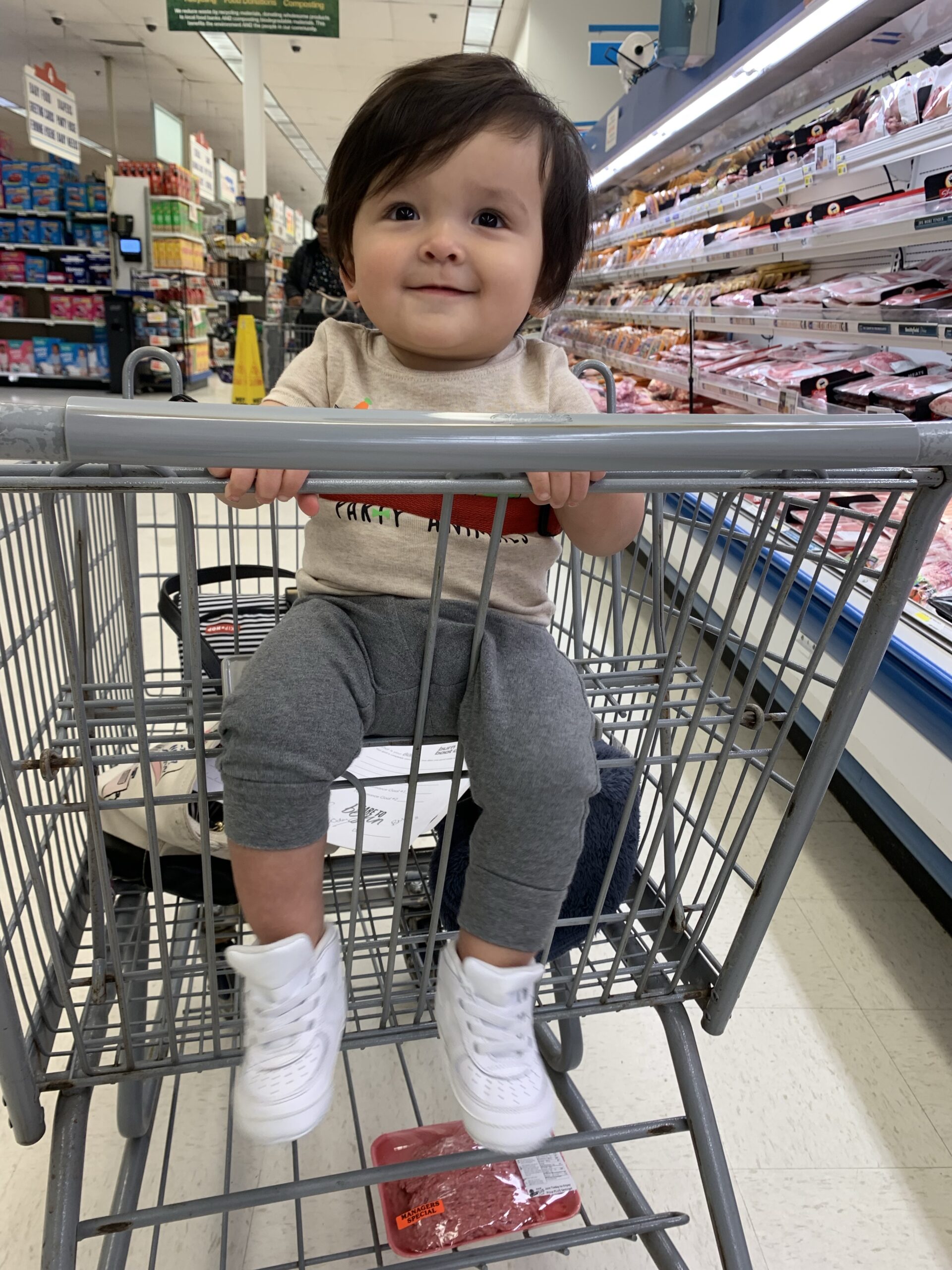
My teen ate half of the jalapeños reserved for the dish my husband was making for dinner. He grabbed a jalapeño, dipped it in sauce, scarfed it down. When we made this discovery, I offered to run to the store. I was happy to get out of the house in the outfit I put together that day.
Whenever my teen goes to a store with me, he already says, “no cashier is safe”—from conversation with me, that is. He’ll complain about how ~sad~ it is that they can’t complete a “normal transaction.” I argue that their day’s work is often monotonous; everyone appreciates friendly conversation and my hilarious jokes. He’s sick of me now, but I hope he’ll follow my lead one of these days.
My Grocery Store Friends
I used to go to one of our local grocery stores every.single.day., Monday through Friday. My youngest was an infant when I signed up at a new gym. He’d cry the whole 45 minutes I was working out if he wasn’t held by the childcare worker. Thankfully they held him, but I knew it was stressful for him.
I also knew that babies thrive on routines and that he would often cry the entirety of all car rides, much to my frustration. I didn’t want to do that to him after being in the arms of a relative stranger. So I made the routine: gym every weekday, 9:30 a.m., grocery store that shares a parking lot with the gym afterward.
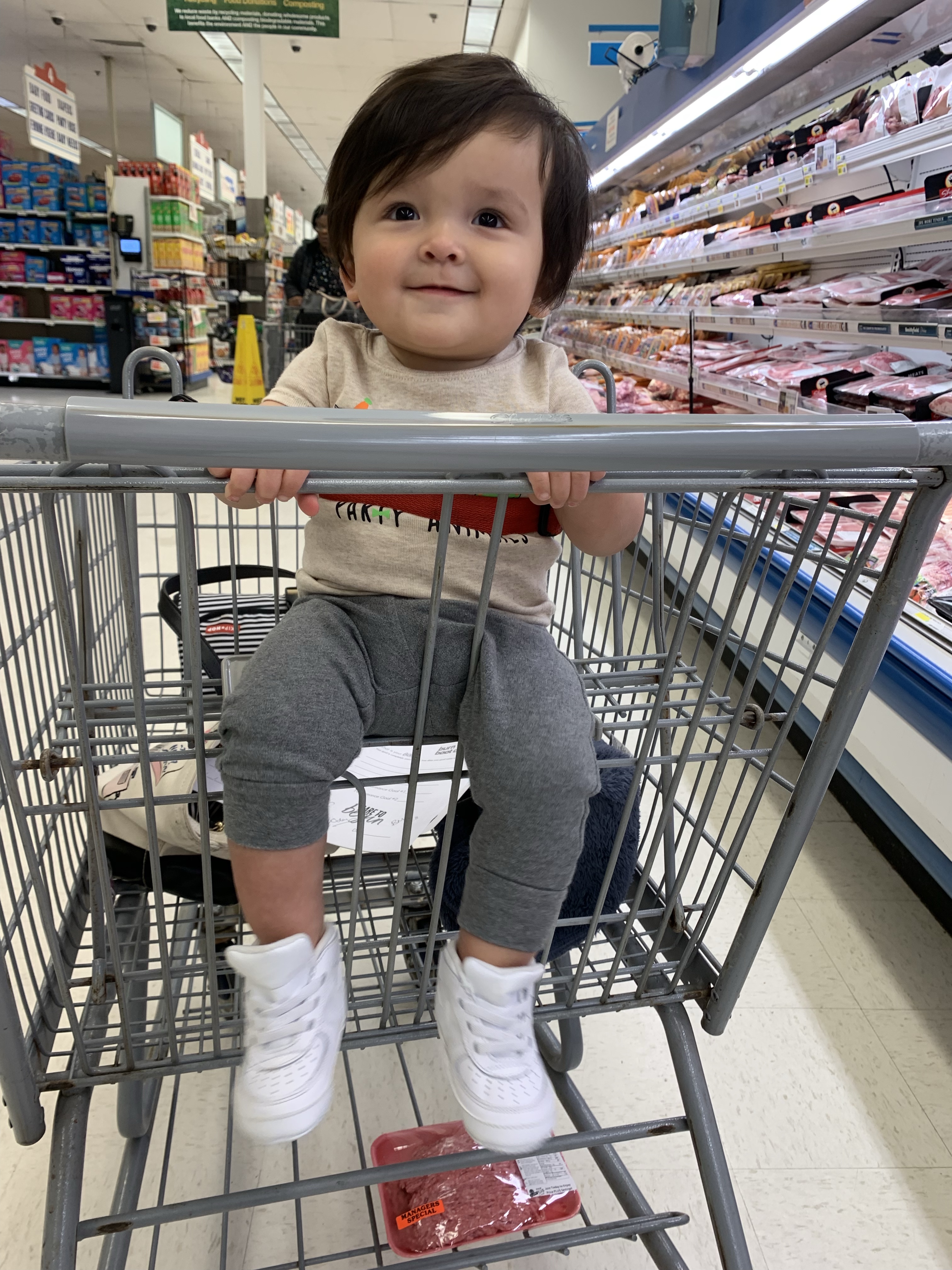
Babies get a lot of attention at grocery stores and it wasn’t long before many familiar faces recognized us. There were days I forgot my wallet or I didn’t have a single thing I could possibly need after having been to the store the day prior, but I still wanted the routine for him. I’d put him in the cart, walk through the aisles, and tell my grocery store friend at the end of the ordeal my predicament and that I’d see them tomorrow.
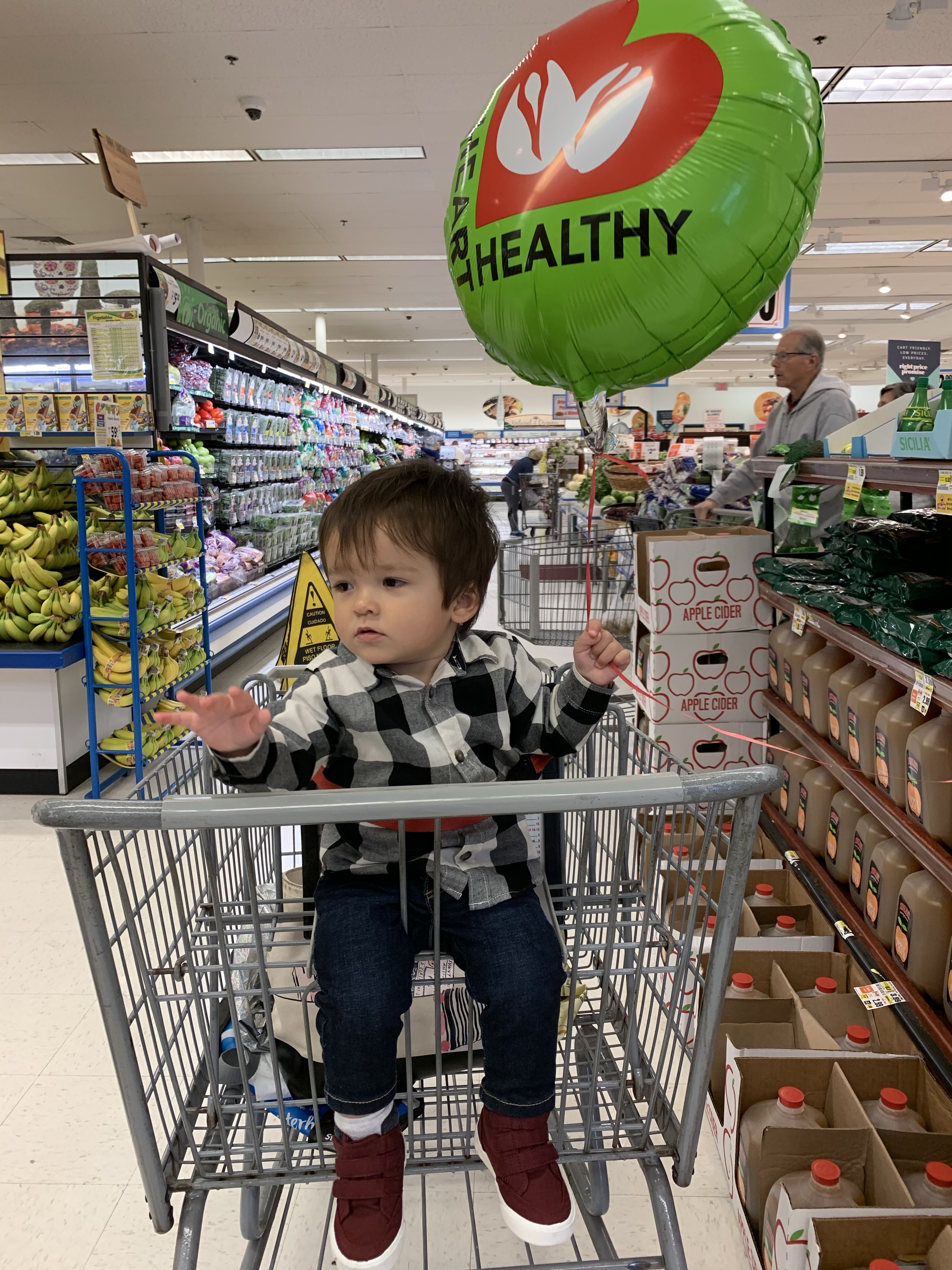
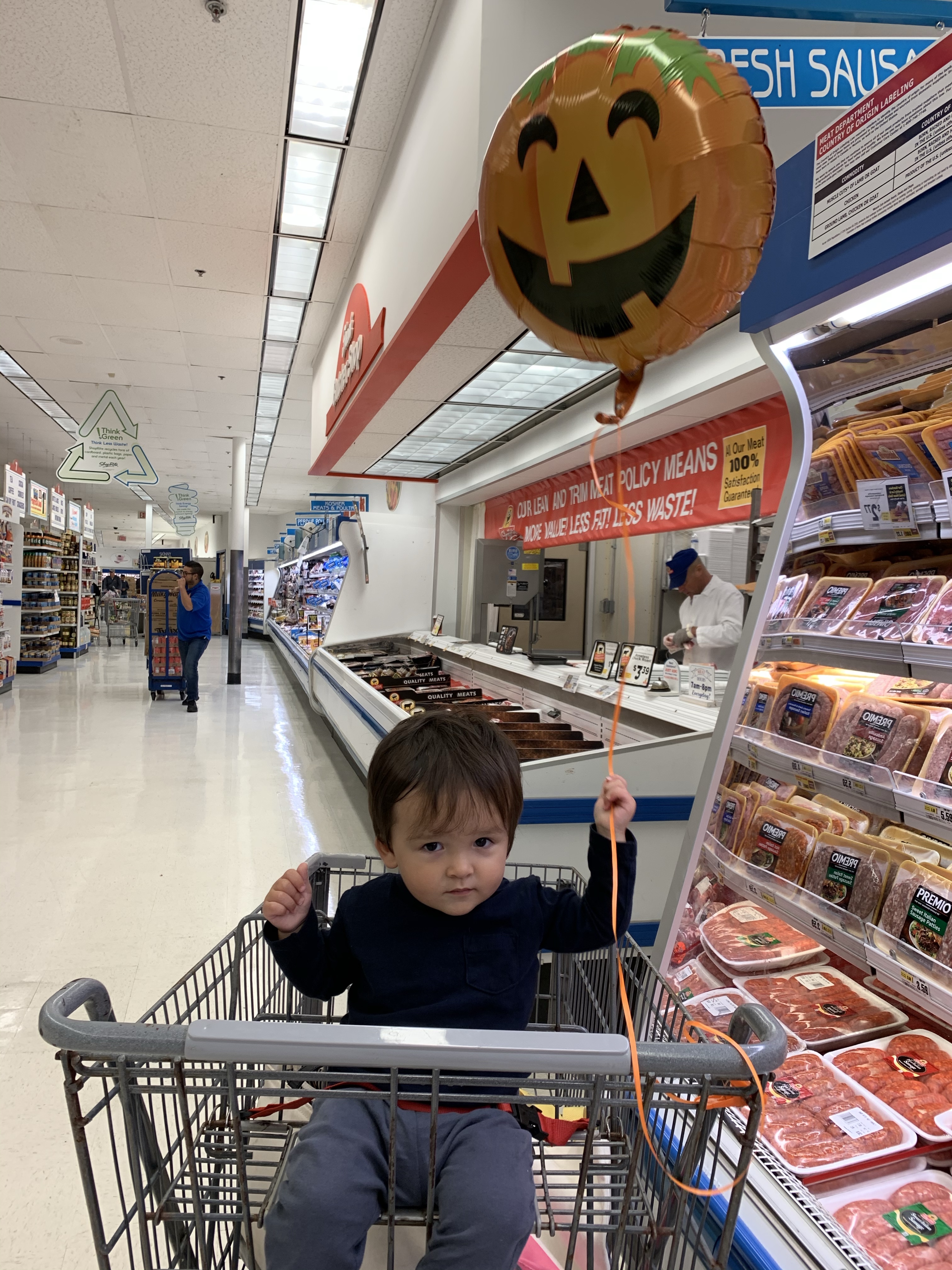
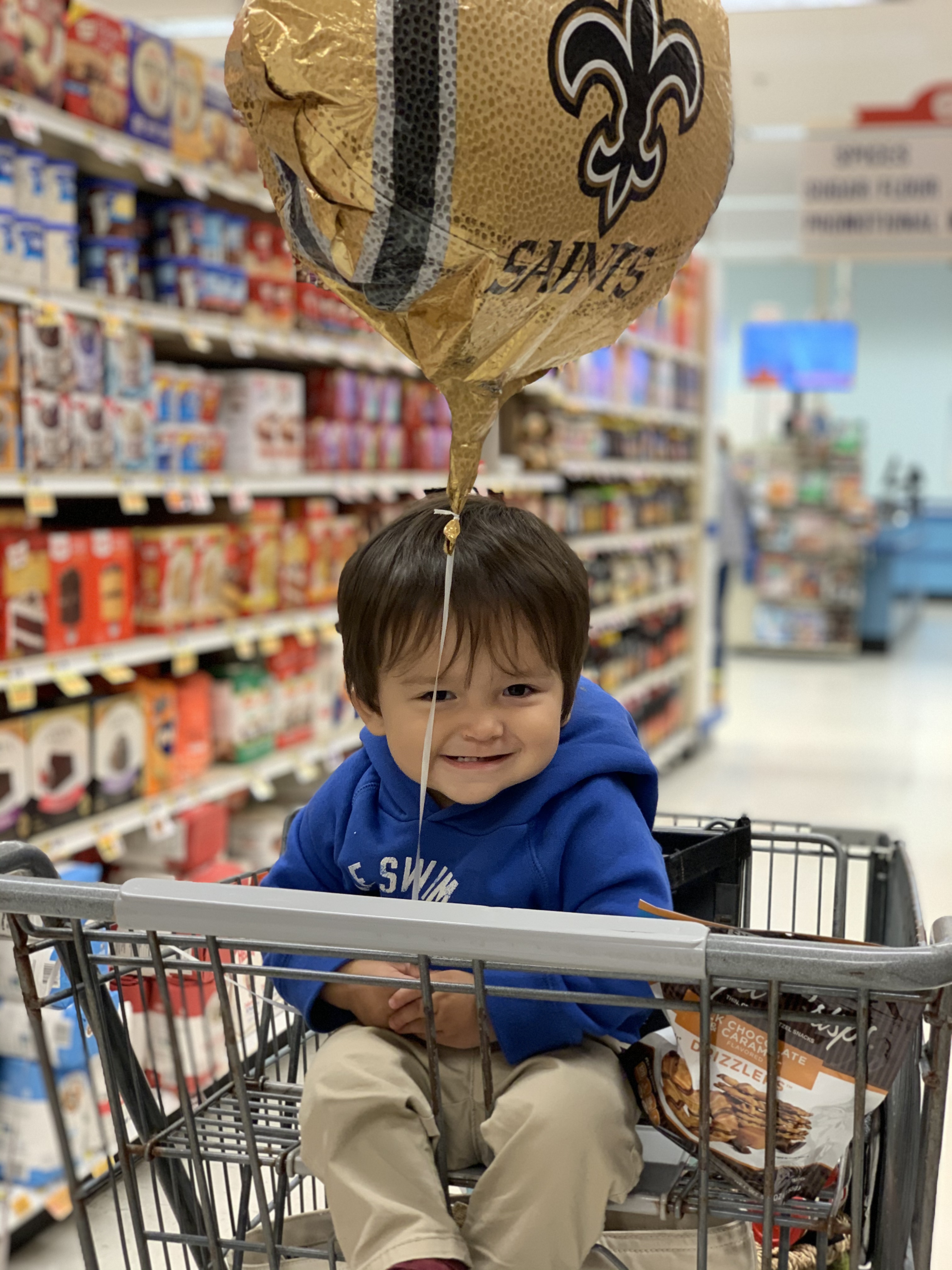
Our routine ended when the pandemic again, and most of the grocery shopping is done by the cook in my house, my husband. But there are still friendly faces at that store if I go in the morning hours. I used to always go through Alicia’s lane, before she went on maternity leave, came back for a week and then left for good. Now I look forward to seeing Jessica, and she looks forward to seeing me. When I get in her lane, we both start to smirk, in anticipation of my “comedy set.” The nearby cashiers and baggers will participate, too.
Jalapeño Business
I’ve got my old friends in the morning at that store—the butchers, the produce stockers, managers, cashiers and baggers. I don’t know anyone in the evening shift, never have. So this day, with my jalapeño, tortilla chips, and onions, I just picked which checkout randomly.
Approaching the cashier as the previous customer grabbed their reusable bags to leave, we looked at each other and said in unison:
“How’s your day?”
Like the Olsen twins, right on cue. I laughed, she asked again, I gave the customary, “Good, how about you?”
“Not too good at all.”
“Oh man, sorry to hear that. When do you get off?”
“At nine, but that’s not even the problem. It’s because I can’t even eat anything and no one even told me that.”
“You can’t eat? Said who? The boss?”
“No, them.” She points to the shift managers that stand at the center of the store. “They said I couldn’t eat right here because it’s unprofessional or something and we only get fifteen minute breaks so what’s the point?”
“Oh. You want me to go pick something up for you? I’ll go pick something up.”
“No, you don’t have to do that, but thanks for offering. I just wish I woulda known, especially at a job, they should tell you you can’t eat.” I could tell a large part of her frustration stemmed from getting in trouble for something she didn’t know was wrong. She was sullen as she reached for my items. “Look, you about to eat, you got chips, you got…uh—“
“Yeah, my husband is cooking right now.” I went on to explain my jalapeño eating son. “So he’s cooking right now and needs the jalapeños, otherwise I’d be more pushy about picking you up a bite to eat.”
“Dang, see, he even hungrier than we are!”
Our conversation concluded as the transaction did, and we wished each other well. I walked away thinking how surprising it was that she revealed that much despite the unwritten rules of American “How are you?”s. Did she work in the mornings and recognize me from my interactions with Jessica? No, she must be brand new. Maybe it was because we already shared a moment when we spoke in unison.
But how are you, really?
I loved it. In a brief exchange only long enough to purchase three different items, we had a memorable human connection.
It makes me think about how often we miss opportunities to connect. People on the phone with someone else during a transaction or those who will not even look into the eyes of a person providing a service. Then afterward, they go home, scroll the social feed of people they haven’t seen in upwards of a decade, and go to sleep feeling lonely. How silly!
This interaction was small compared to one a couple of weeks ago, when I dropped into a local pharmacy chain after the gym. It’s the only place open in my area where I can grab a few things at 6:15 in the morning. Somehow my carton of eggs and gallon of milk led from talk about breakfast, to discovering we both have two children with a ten year gap between them, to twenty-five minutes later, we’re talking about how her younger child’s father flashed a gun at her and the cops won’t do anything about it.
Talk about an express train to emotional intimacy.
Ubuntu
Last year, I learned about Ubuntu from a children’s book at the library, I am You: A Book about Ubuntu. I read it a few times to my son, but my western mind couldn’t wrap itself around the concept, though it was simplified for the mind of a child.
The most direct translation of ubuntu comes from a proverb that is found in almost every African language: “a person is a person through other persons.”
Western cultures are fixated on individuality and that’s all I’ve really known. So when I stumbled upon a book written for adults on the subject, I had to delve further.
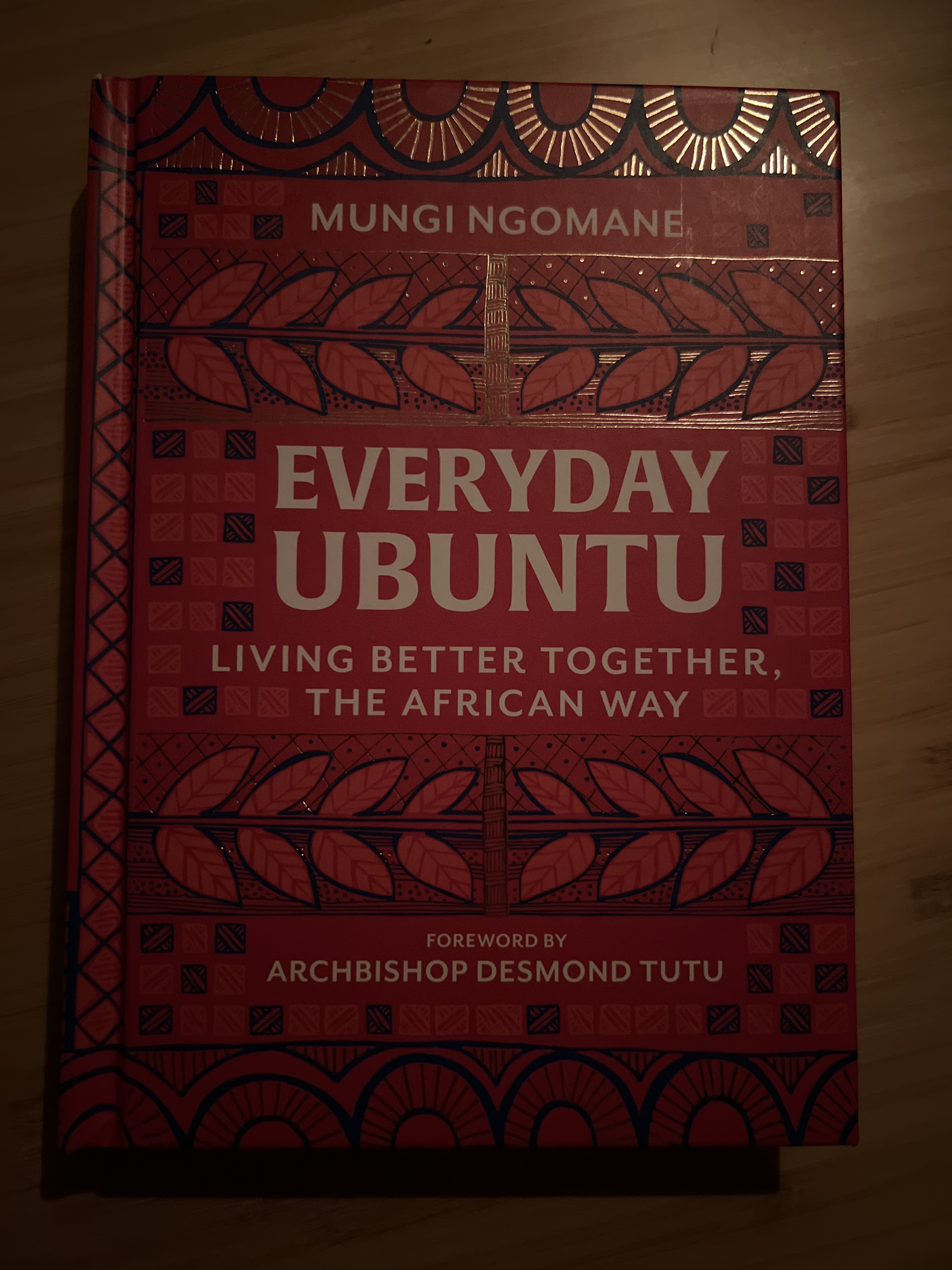
Reading through the book, I saw many suggestions that cultivated a sense of Ubuntu that I was already doing like being forgiving and learning from my children. But it still felt so foreign. Though I was seeing an equal human in everyone and treating them as such, I was doing so to be kind, because I knew it was the right thing to do. This jalapeño incident was the first time where I felt fully embraced by ubuntu.
Ubuntu vs Kindness
It’s taken me a few days to uncover the difference that I felt between this interaction and other times when I’m generally being friendly or kind to strangers. I realize now that kindness often comes from the sense of “doing what is right” from a logical standpoint, or doing the “right thing” because that’s what you’ve learned to do to be a “good person.” These both come from a sense of doing things for the self. It’s about perception of the self, it’s a think, then act situation rather than a feeling or instinctual situation.
In Malawi, it’s “uMunthu,” meaning that on your own, you are no better than a wild animal, but two or more people make a community.
This was hard for me to grasp initially, but think of solitary confinement—one of the most mentally debilitating forms of punishment. Despite the brain’s plasticity, a person will lose the capacity to return to fully functional mental capacity after prolonged solitary confinement. Why is this?
A person is a person through other persons.
We’ve seen it played out in fiction, like Tom Hanks’ Cast Away, and isolation got way too personal during those earliest covid months.
The science is there, too. In Humankind: A Hopeful History, author Rutger Bergman drew from an experiment that compared cognitive functions between two year old children, apes, and chimpanzees. They found that our closest relative species were far better at understanding simple cause and effect and more quickly able to use tools. In fact, they did far better at all of the tests, except for one: social competency.
Social competency is what separates us from monkeys. It is what allowed humans to alter the planet to the way they see fit (whether we like the results or not). Social competency is what caused the slow, relatively small and weak Homo sapiens to stand atop all the food chains. Because we have the capacity to learn from others, to work together and share that information, we are able to thrive. That’s what makes us human.
You Cannot Replicate this Virtually
So much of our communication technologies are brand new, but our brains are slow evolving. Sure, you might logically feel like you had a good email conversation with an old pal. But those lizard parts of your brain don’t register it as a conversation when you look at a photograph they took of themselves on vacation three years ago and you interpret the letters L-O-L to be laughter. Your brain knows the safety of relaxed facial expressions, of an authentic smile over a forced one, and it finds home in those expressions made by someone you love.
Understanding Ubuntu
Though I’d highly recommend Everyday Ubuntu, it took seeing it in my own life in conjunction with my reading to grasp ubuntu. Like on a windy day, when the cardboard sign a man was holding in the middle of an intersection blew off to the side and I immediately pulled over and put the car into park before realizing he was definitely get to it faster on foot. Or when, Friday, I was backing out of a parking spot when I hit one of the rogue windstorm grocery carts and it started rolling toward another car. I parked the car halfway out, left it on and went for the cart at the same time as someone waiting in their car opened the door and stopped it. “Is your car okay?” they asked, and I replied “Who cares? I don’t want it to hit someone else’s!”
I’m not sharing this to virtue signal (in fact, I was embarrassed immediately afterward when I said “Who cares?”—it was feeling direct to mouth) but rather to help paint the picture of this value that I’m interested in watching grow through less and focused morning intention and meditation. Instinctual moments of human-to-human connection for the sake of connecting, despite concerns for the self.
Thank you for reading. I am who I am because of you.
[…] LOVE it, and I felt like I had been bitten, I couldn’t wait to do some more. When my friend at the grocery store told me I looked like I was dressed like Dolly Parton, I KNEW I was on the right […]
[…] can be a means of connection, as you bridge the gap between what they have and what you want. You could tell the other person […]
[…] Ubuntu and community are two of my utmost priorities, and everyone is my equal and they should feel as such. Every interpersonal experience involves the actions and reactions of more than one person. I can be responsible for my end. […]
[…] the same businesses. There are so many people I can look forward to seeing at their workplace- my friends at the grocery store, the friends at the coffee shop where I buy my husband’s beans, the waitress at the soup dumpling […]
[…] eight months, which is seems to be long enough for members to be on the receiving end of enough eye contact, smiles and friendly greetings to risk the potential faux […]
[…] Ubuntu. […]
[…] a children’s book. Yet, it’s not simple to define like China’s Yin-Yang. Like Africa’s Ubuntu, this Japanese concept, wabi-sabi, can’t be directly translated into a word in […]
[…] built my own family. I build community, I practice ubuntu, I connect with others quickly and frequently. I make friends that mean the world to me. I think of […]
[…] paid in is love from my children. It’s positive interactions with other people all day long as I chat up people on my errands—last week at Target the cashier even gave me her discount on a hat after a nice conversation! The […]
[…] now would be astonished to learn this. I’m the one chatting up anyone and everyone in line at the grocery store. The one with the best energy, giving compliments left and right, making someone’s day with a […]
[…] ever even answer a text message. I like being in the company of others, spending time with them in person, out in the community. But I find the modern expectation of constant communication to be […]
[…] love to feel the warmth and abundance of having a quick exchange with a stranger: a reminder that I am not alone. Connection is one step away; community is built brick by […]
[…] insights and contributions to make and I have the courage to speak up. I’m warm, relatable, and connect with others easily, which leads to those around me feeling a sense of belonging. I love to listen, so people feel […]